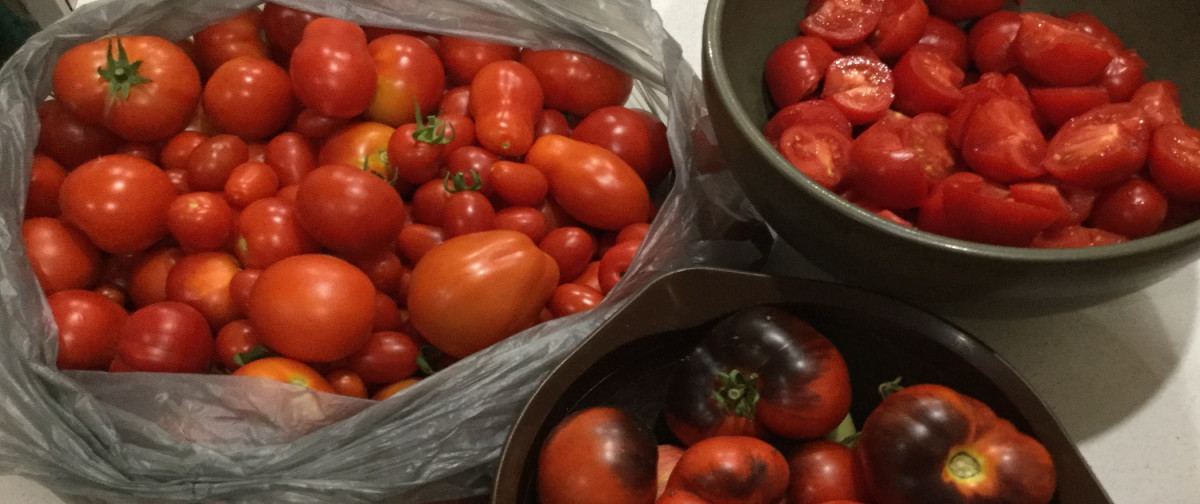Food Is Free: How to Help The Hungry And Reduce Food Waste
In our world of abundance there is often a lot of food waste, creating enormous landfill issues. Food Is Free is a movement that is working to reduce the issue of food waste and at the same time, help those in need. This is done by collecting food that would otherwise be thrown away.
The Food is Free initiative started in Austin, Texas. Australia’s turn came when Lou Ridsdale decided to set up a space next to her home in a Ballarat laneway, in 2014. It can now be found in many suburbs around Melbourne, including the one I have set up.
What is Food Waste?
Food waste is the discarding of edible food that is not eaten or used. It can refer to the intentional or unintentional discard of food by individuals, businesses, and governments. Food waste can take many forms, including spoilage and inedible parts of food that are discarded before they are consumed.
The National Food Waste Strategy reported that “food waste is estimated to cost the Australian economy $20 billion each year.”(2017, P.3)
Where does Food Waste come from?
In developed countries, about one-third of all food produced is wasted or lost due to inefficiencies in the supply chain and consumers’ unwillingness or inability to properly store and use it. Food waste comes from a variety of sources, including homes, restaurants, grocery stores, and food processing plants. There is also a mindset of needing fruit and vegetables to be “perfect” for us to buy it, leading to waste at the farm due to blemished or imperfect product.
The Negative Impacts of Food Waste
Food waste is a serious issue that has negative impacts on both the environment and our economy. Australia throwing away around $20 billion in food waste creates problems because it uses taxpayers money to dispose of this food waste, and it also creates environmental problems due to the release of harmful greenhouse gases from decomposing food.
According to the United Nations, food waste amounts to about 1.3 billion tons per year, which is equivalent to about one third of global greenhouse gas emissions. This wasted food costs consumers an estimated $750 billion annually. In addition, food waste can have a negative impact on the economy because it takes up valuable resources (such as water) and produces methane, a potent greenhouse gas.
How to Reduce Food Waste
There are a number of ways that we can reduce food waste. We can start by educating ourselves and others about the issue. We can also make changes to our own behavior to reduce the amount of food that we waste. Finally, we can work to change the policies and practices that influence how much food is wasted.
1. Look for ways to reduce food waste before it happens.
- Be mindful of how you grocery shop and cook.
- Use up food before it goes bad.
- Buy only what you need, and don’t overbuy or impulse buy
2. Store food properly to avoid wasting food.
- Be sure to store food properly and use it before it goes bad.
- Freeze food for later.
- Understand safe food handling and storing techniques.
3. Use leftovers wisely
Use a meal plan to help avoid waste and ensure leftovers will be used.
Cook up leftovers in a new way to create new and delicious meals.
Plan meals with work or school lunches in mind for the next day.
4. Choose other methods for dealing with food waste
Feed to chickens or worm farm.
Start composting food scraps
If you are unable to do either of the above, check out ShareWaste to pass on your waste to locals near you.
5. Utilise a Food Is Free Pantry
Drop excess food at your local Food Is Free (check their rules for donations)
Start a Food Is Free pantry
How to set up a Food Is Free Pantry
There is no one-size-fits-all answer to this question, as the best way to set up a Food Is Free pantry will vary depending on the size and needs of your community and how much time and space you have available. However, some tips on how to set up a food pantry include:
- establishing guidelines for what items are eligible for donation and setting up donation pick-up days.
- decide where you want to set up your pantry, keeping in mind it needs to be easily accessible and on your own property.
- approach local businesses to invite them to support your pantry with donations of excess food/produce items.
- involve your local community by asking for volunteers to help with collections.
- make the most of social media to put the word out and add a sign and information to your pantry so those walking past can see what it’s all about.
Benefits of Food Is Free
The last two years have been a struggle for many people around the world. People have lost businesses due to being unable to open. People have lost income due to being unable to work, either because their workplace was closed or they or a family member were unwell due to COVID-19. Industry slowed due to travel restrictions and reduced resource availability. So many individuals, businesses and countries have been impacted.
Some of the ways Food Is Free Pantries have helped:
– Provided support to those who have had reduced incomes, those who have been made homeless and those who have been struggling in general throughout the pandemic.
– Diverted food that would otherwise have ended up in landfill to those who could use and needed it.
– Increased community spirit by having something positive to get involved in.
– Increased community connection when neighbours would meet and chat while either volunteering for or collecting from the pantry.
Ellen’s Evaluation
Food is free is a great way to help the hungry and reduce food waste. The aim of this community initiative has been to put excess food and produce to good use rather than adding to the problem. From the personal experience of setting up my ow Food Is Free location, I have seen first-hand what a difference it can make in a community. As others contribute to the pantry and volunteer to help, our sense of connectedness has grown, taking me back to the small-town feel I knew as a child growing up.
I have heard many stories of those I have helped, of those on their way home from work, with no time to shop, who have grabbed bread rolls from the pantry to be able to feed hungry kids, of new mums too tired to think of what to cook who have picked up a jar of sauce mix and some pasta that happenned to be there at just the right time.
Although my pantry can be a lot of work at times, I have found it to be extremely rewarding and I would encourage anyone considering it to give it a go.
I’d love to hear your thoughts so please comment below to share your experience or ask any questions.

